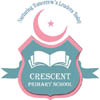
Crescent Primary School
Nurturing Tomorrow's Leaders Today
Prospectus

To fulfil its vision, every public school is empowered (by section 8 of the South African Schools Act of l996) to draw up a Code of Conduct. The code sets out to explain the rules through which the rights and corresponding responsibilities of each pupil are realised. Once formulated, approved and announced, the code has the force of law.
The purpose of the Code of Conduct is to establish a disciplined, safe and purposeful school environment, dedicated to the improvement and maintenance of the quality of the learning process.
Crescent Primary School NPC – Code of Conduct – 2022
- Introduction
Our code of conduct aims at establishing a purposeful and disciplined environment to ensure effective teaching and learning in school. The code of conduct sets out guidelines to ensure there is discipline and order in our school. It informs the learners of the way in which they should conduct themselves in order to promote positive discipline, self-discipline and exemplary conduct.
- Mission
Our Mission is to instil in our learners a holistic education that develops Allah-consciousness together with the development of good character based on the Prophetic example, thus ensuring success both in this world and in the Hereafter, Ameen.
- Vision
Our Vision is to create a centre of excellence where our learners are nurtured holistically, including socially, intellectually and spiritually enabling them to become aspiring and confident citizens who will contribute positively to a society by meeting the challenges of the future, Ameen.
- Rights of Learners
According to the Bill of Rights, rights of learners include:
- Equal treatment and protection of all learners
- Learners to have their human dignity respected e.g. religious beliefs, cultural traditions and privacy
- No learner should be punished in a cruel, inhuman or degrading manner
- Learners have the right to a clean, safe and secure environment
- The opportunity for learning
- Responsibilities of Learners
- Learners to conform to school and classroom rules
- Learners must attend school regularly and punctually
- Learners to actively engage in the learning process
- Learners are obligated to protect and care for school property
- Learners must respect, be polite and obey the principal and all educators, sheikhs, muallimas and non-teaching staff
- Learners must respect other learners
- Responsibilities of Educators
- Educators to conduct themselves as Muslim educators
- Educators must maintain a high standard of professional ethics
- Educators must be present during contact time to teach, assess and report on learners’ progress and to look after their well-being
- Educators must reinforce correct / positive learning behavior and responses
- Educators to be role models for learners
- School rules, regulations and procedures
- School hours
- School stats at 7:45am daily
- Dismissal times are as follows:
Grade R 13:15
Grade 1 & 2 14:15
Grade 3 14:45
Grade 4-7 15:15
- Friday dismissal is at 12:10
- At the start of the day and after the two intervals, learners must assemble when the siren sounds (bell rings), pray and proceed to class under teacher supervision.
- Late-coming
- Late comers to report to the office to collect a late slip which allows them entry to the classroom.
- Uniform
- All learners to wear the full school uniform
- Boys must wear the school fez for Dhur Salaah and Jumuah.
- A tracksuit may be worn for physical education
- Learners who do not have the correct uniform, or item of uniform, should have a letter from the parent explaining the situation and by when the uniform will comply fully.
- Jewellery
- Jewellery is not allowed, except that which is inconspicuous.
- A single stud or sleeper in each ear in silver or gold may be worn by girls.
- Hair
- Hair may not be dyed
- Boys: hair should not touch the shirt collar, fall over the ears or hang over the eyes. No gel allowed. No fancy hairstyles allowed, only school boy haircut allowed.
- Girls: hair to be worn as per Islamic dress code.
- Nails
- Nails must be kept short and clean
- No nail varnish is allowed
- No false nails are allowed
- Absenteesim
- When a learner is absent, the learner must bring a letter from his/her parents when returning to school.
- When a learner is absent for an assessment or exam, due to being sick, then a medical certificate must be sent to school
- Regarding early dismissal, the learner must show this letter to the class teacher.
- If a learner becomes sick at school, the secretary will phone the parent to fetch the child. A learner may not contact a parent, the office will contact a parent.
- Cellphones
- Cellphones are not allowed.
- A cellphone will be confiscated and returned to a learners’ parent at the end of the day.
- In special cases where it may be necessary for the learner to have a cellphone, it must be handed in at the office for safe keeping until the end of the day.
- Examination Policy
- Attendance: If a learner is absent from an exam due to ill-health, the parent must produce a medical certificate as soon as possible. A learner will be given an assessed mark or be allowed to write. If a learner is absent due to any other reason, then the parents must contact the office as soon as possible.
- Exam rules: Learners may not borrow stationery. Silence while writing. No helping of other learners. Those who finish early may not leave the room. All learners to be seated while the teacher collects the scripts and to be dismissed at the end of the exam.
Examination Policy (continued)
- Copying: If a learner is found copying, then the teacher will remove the script and the learner must start over again with a new script. The mark form the new script will be recorded. After the exam, the learner and parents will face a disciplinary hearing.
- Disciplinary Measures
These include the following:
- Verbal warning
- Written warning – letter to parents / guardian
- School counselling
- Detention
- Interview with parents
- Letter of warning of suspension
- Suspension from school
- Expulsion from school
- Lay a charge with the Police
- Community service
- Writing of lines
- Learning something new
Crescent Primary School
“Where Every Child Is A Success!”
 D5 Creation
D5 Creation